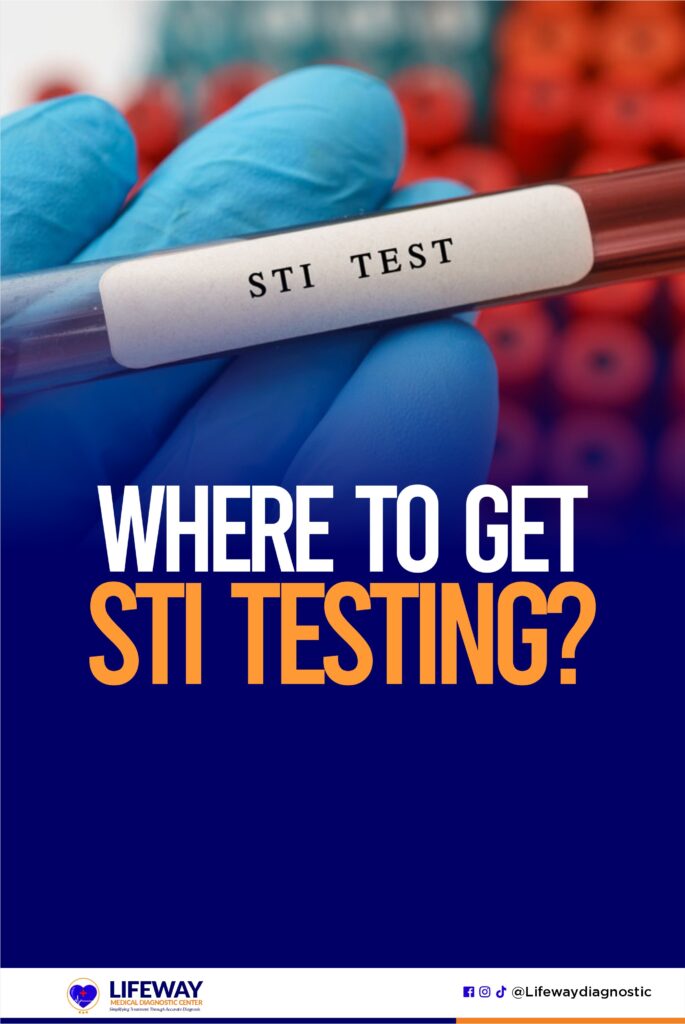Sexually transmitted infections (STIs) are a significant public health concern. STI testing is essential for individuals who are sexually active or have engaged in risky sexual behaviors.

There are numerous types of STIs, including chlamydia, gonorrhea, syphilis, human papillomavirus (HPV), herpes, HIV/AIDS, and hepatitis.
Each STI has its own testing methods, and some infections may require multiple tests for accurate diagnosis.
In this comprehensive guide, we will explore various options for STI testing and some key points you need to know about STI.
What is STI?
STI (Sexually Transmitted Infection) refers to an infection that is primarily transmitted through sexual activity, that involves direct contact with infected bodily fluids, such as semen, vaginal fluids, blood, or sores.
This is also known as STDs (Sexually Transmitted Diseases). They can affect individuals of all ages, genders, and sexual orientations.
STIs are a significant public health concern worldwide, and they can have both short-term and long-term health consequences if left untreated.
Types of Sexually Transmitted Infections
Bacteria, viruses, parasites, or fungi cause many types of STIs. Common STIs include:
- Chlamydia
- Gonorrhea
- Syphilis
- Human papillomavirus (HPV)
- Herpes
- Human immunodeficiency virus (HIV)
- Hepatitis B and C
How are STIs transmitted?
It is important to note that some STIs can be transmitted through non-sexual means, such as blood transfusions, organ transplants, or sharing contaminated needles. However, sexual contact remains the primary mode of transmission for most STIs.
Some modes of STI transmission include:
1. Unprotected Sexual Intercourse:
Having vaginal, anal, or oral sex without using a barrier method, such as condoms or dental dams, with an infected partner can lead to transmission.
2. Infected Bodily Fluids:
Being in contact with infected bodily fluids, such as through sharing contaminated needles or syringes during drug use, can transmit certain STIs like HIV or hepatitis B and C.
3. Vertical Transmission:
Pregnant individuals with certain STIs can pass the infection to their unborn child during pregnancy, childbirth, or breastfeeding.
4. Skin-to-Skin Contact:
Direct skin-to-skin contact with infected areas can transmit STIs like herpes and human papillomavirus (HPV), even in the absence of visible symptoms or sores.
Symptoms of STIs
The symptoms of STIs can vary depending on the specific infection.
Some STIs may cause noticeable symptoms such as genital sores, discharge, pain or burning during urination, or flu-like symptoms.
However, many STIs can be asymptomatic, meaning they do not show any visible signs or symptoms.
As a result, individuals may be unaware that they are infected and can unknowingly transmit the infection to others.
STI Testing Methods
STI testing can involve various methods, including:
- Blood tests: Healthcare providers take blood samples to detect antibodies or genetic material of certain STIs like HIV, syphilis, and hepatitis.
- Urine tests: Urine samples are collected to screen for infections like chlamydia and gonorrhea.
- Swabs: They also take swabs from the genital area, rectum, throat, or mouth to test for STIs like chlamydia, gonorrhea, herpes, and HPV.
- Physical Examinations: In some cases, healthcare providers may perform a physical examination to check for visible signs of infection, such as genital warts or sores.
Importance of STI Testing
Early detection of STIs is crucial, as many are treatable if caught early. Regular testing helps prevent the spread of infections to sexual partners.
Certain STIs, if left untreated, can lead to serious long-term health consequences like infertility, increased cancer risk, and even life-threatening conditions.
Getting tested and treated appropriately is an important part of maintaining sexual health.
Conclusion
STI testing is a responsible and necessary part of taking care of your sexual health. Regular testing and honest discussions with healthcare providers can help keep you and your partners healthy.
Receiving a positive result can be distressing, but it’s crucial to address it promptly to prevent further transmission and potential complications.
Those with multiple partners or engaging in high-risk behaviors may need more frequent testing, such as every 3-6 months.
Contact Lifeway Medical Diagnostic Center to schedule your STI testing appointment and experience our exceptional care and expertise.
